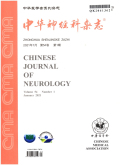摘要神经遗传病是一组主要累及神经系统,包括中枢神经、周围神经、肌肉的遗传性疾病,临床表现复杂多样,治疗难度较大。近年来,随着对神经遗传性疾病病因和发病机制的深入研究,针对突变基因研发的基因治疗方法如反义寡核苷酸、RNA干扰、腺相关病毒介导的基因转导、具有基因修饰作用的小分子化合物和规律间隔成簇短回文重复序列/Cas9基因编辑等以及针对致病机制关键靶点研发的具有潜在疗效的药物逐步向临床应用转化,为神经遗传病患者的治疗带来新的希望。
更多相关知识
abstractsNeurogenetic diseases are a group of hereditary diseases that predominantly affect the nervous system, including the central nervous system, peripheral nerves, and muscles. The clinical manifestations are complex, and the treatments are rather difficult. In recent years, with the in-depth study of the etiology and pathogenesis of neurogenetic diseases, gene therapeutic approaches developed for mutant genes, such as antisense oligonucleotides, RNA interference, adeno-associated virus-mediated gene transduction, small molecule compounds with gene modification effects, and clustered regularly interspaced short palindromic repeats/Cas9 gene editing strategies are gradually transformed into clinical applications. The drugs with potential therapeutic effects are developed in according to the promising targets within the pathogenic mechanism of diseases. These emerging therapeutic approaches provide innovative prospects for patients with neurogenetic diseases.
More相关知识
- 浏览111
- 被引2
- 下载5


相似文献
- 中文期刊
- 外文期刊
- 学位论文
- 会议论文



 换一批
换一批 换一批
换一批



